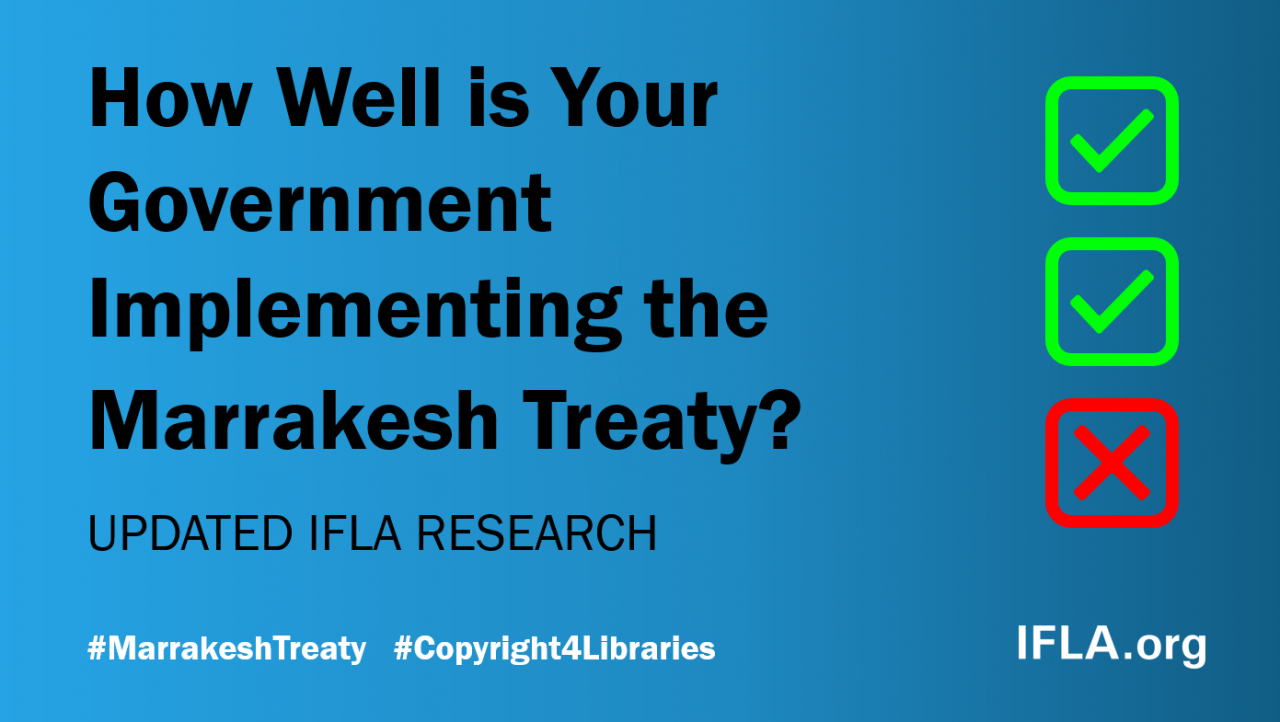Bringing the Marrakesh Treaty closer to practice: IFLA releases new monitoring report
24 January 2019
IFLA has today published an update to its Marrakesh Monitoring Report. This sets out which countries have ratified or acceded to the Treaty, and which have taken the necessary steps at the national level to make it a reality. It underlines the need for continued attention at the national level to make a reality of the promise of Marrakesh.
The Marrakesh Treaty is a key legal instrument adopted by the World Intellectual Property Organisation in 2013. It sets out to end the book famine for visually impaired people around the world. The Treaty provisions allow institutions such as libraries, under specific circumstances, to produce and exchange accessible format copies of works, including across borders. By doing so, more works will be available for people with print disabilities.
IFLA is keeping track of changes at the national level to bring national legislations in line with the Treaty. This is important, as in almost all cases, for the Treaty to have an impact, there needs to be both ratification or accession to the Treaty, and national reform.
The monitoring report published today follows up on the previous edition from October 2018. Many countries have been added to the list, and several more have made legislative changes in their national law since then. More and more are effectively ready to start using the Marrakesh Treaty provisions.
While we haven’t yet seen many cross-border exchanges of accessible format copies under the Marrakesh Treaty provisions, the ratification of the Treaty is helping librarians to encourage the production of accessible format works in their countries.
Libraries for the blind are also raising awareness among other libraries in their country who can act as authorised entities to encourage their involvement with the Marrakesh treaty provisions.
The overview also offers useful evidence to those currently involved in advocacy efforts. To simplify the use of Marrakesh provisions in practice, countries should be as aligned as possible in the key aspects showed that the overview shows.
For instance, if two countries want to exchange works across-borders, but one has remuneration provisions and the other doesn’t, questions as to whether the second one needs to abide to those may arise and complicate the exchange. The simpler and more aligned provisions are, the more likely it is that the Treaty will be a success.
IFLA will be publishing updates of this document on a regular basis. Comments and updates are very welcome – contact us.
Download the Marrakesh Monitoring Report (January 2019 update)
